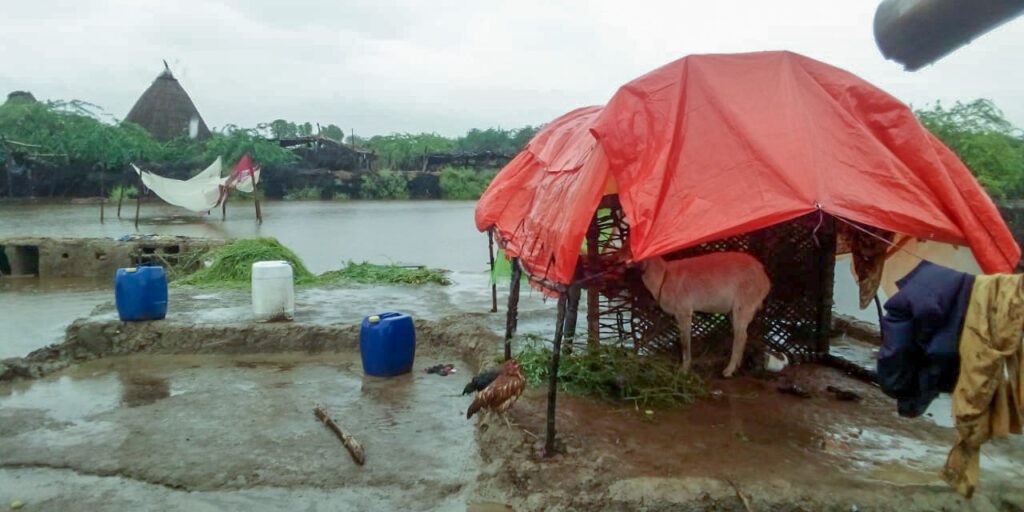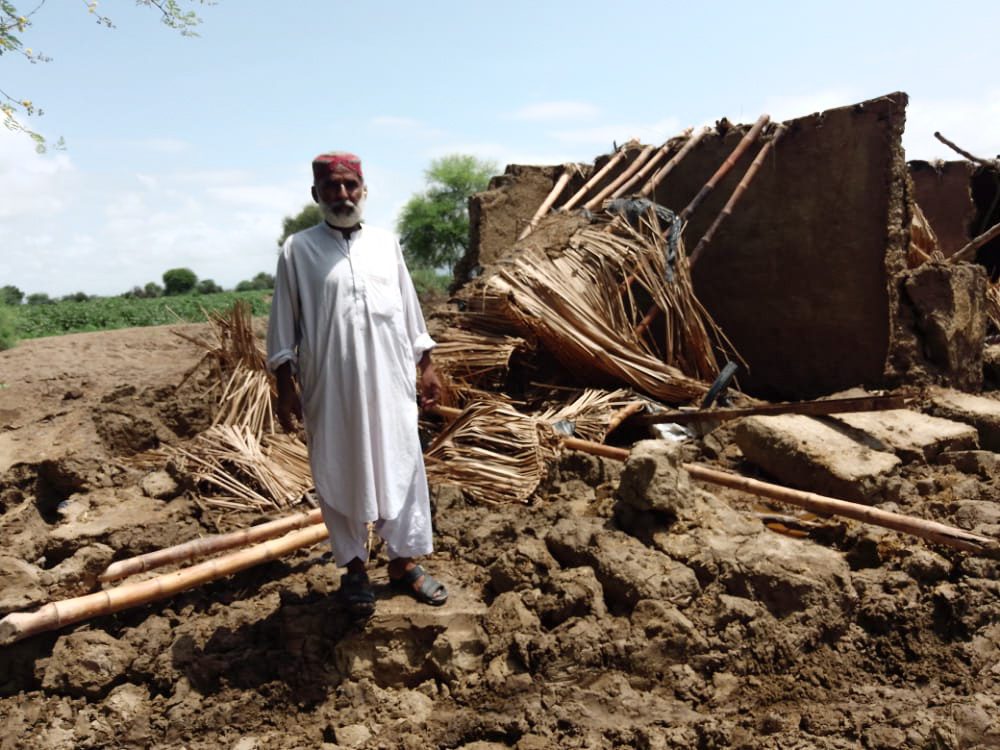By Randy Haluza-DeLay, Animator for Central Ontario, and Beth Lorimer, Ecological Justice Program Coordinator, KAIROS Canada
A surprise early gain at the COP28 summit currently underway in Dubai was the creation of a “loss and damage fund” worth about US $429 million, to which Canada has pledged $16 million. After the initial public relations euphoria died down, civil society organizations were quick to note the fund’s gross inadequacy. Canada’s contribution, for instance, would cover only an hour’s worth of the damages inflicted by climate change, by one estimate.
So, what would a fairer fund look like? Beth Lorimer and Randy Haluza-DeLay, a co-author of a KAIROS Canada report on the subject, provide some answers.




When Zacchaeus encountered Jesus, he suddenly realized how unfair he had been. He declared that he would give away half his wealth and to those from whom he had taken too much, he would give back four times what he took.
Zacchaeus had benefited from a system that allowed tax collectors to take a surplus and keep it. The return of wealth achieved at the expense of others is known as reparations. For Zacchaeus, his encounter with Jesus helped him realize that his personal responsibility and the actions of his past now required reparations.
As the United Nations climate negotiations summit known as COP28 unfolds, one of the key items on the table is funding for what is known as “loss and damage.” KAIROS: Canadian Ecumenical Justice Initiatives, of which Development and Peace ― Caritas Canada is a member, released a report in mid-November. Addressing Ecological Debt: Equity and Justice for Climate-Related Loss and Damage provides background on the issue and recommendations for the Canadian government and the international community.
Loss and damage: what and why
Carbon pumped into the atmosphere and oceans has caused the climate to change, resulting in suffering from the damages caused by what is increasingly seen as climate breakdown. The global economic and ecological systems have allowed countries that are now wealthy to benefit by taking more than their fair share of nature’s bounty. Canada still emits more greenhouse gases than any calculation of its fair share would be.
Canadians are getting lived experience of climate damage in the form of an increase in forest fires, stronger weather and flooding in the coastal regions, and more rapid warming in Arctic regions than the global average. The negative consequences of climate change are even more severe in other countries. Many vulnerable countries do not have the resources to handle the changes and the damage. According to a report by a coalition of countries called the Vulnerable 20 Group, climate change has erased one-fifth of vulnerable countries’ wealth over the past two decades.
Loss and damage funding is the return of some wealth to those who are facing the consequences of the climate breakdown. They have not caused climate breakdown.
Loss and damage: a Christian imperative
Churches care about climate justice because we know the story of Zacchaeus, and we too encounter Jesus saying we have responsibilities to act fairly and give our resources to help others who have less. Most of the countries vulnerable to climate-related loss and damage lack the resources to deal with the problems that have already begun to arrive.
The recent apostolic exhortation by Pope Francis, Laudate Deum, highlights the urgency of the climate crisis, and the ethical responsibilities of Christians in a global community. An important part of a fair and just climate approach is to help communities that contributed far less to climate causes than others but have to deal with climate-related damage.
Loss and damage: who and how
In considering climate justice related to loss and damage, three key questions should be asked:
- Who has caused the climate crisis, and therefore who is to pay?
- Who are the victims? Who will receive compensation?
- What has been lost and who decides what counts as loss?
Financial costs are more easily measured for such effects as loss of agricultural productivity, damaged infrastructure or resettlement of climate refugees than for less tangible but no less important effects such as loss of community, disconnection from the land, diminished social cohesion and culture.
The KAIROS report concludes with a set of recommendations to the Canadian government and the international community. These recommendations are meant to ensure that funding for loss and damage is just, prioritizes grassroots and community organizations who are closer to the climate-related effects rather than only helping national governments.
The recommendations emphasize that funding comes in the form of grants instead of loans that would add to the existing debt crisis. Funding should be gender-responsive and support the leadership of women in climate-related decision-making. And all funding should be led by those most affected by climate breakdown so that it is not an imposition by Global North countries on others.
Most important is that Canada, and other industrialized countries, explicitly recognize their historic role in contributing the bulk of the emissions. Historically, this bloc of countries is responsible for 90 per cent of emissions, according to a study published in the British medical journal The Lancet. Canada needs to increase its funding of mitigation and adaptation and establish new lines of climate finance for loss and damage. This is how we deal with our historical responsibility, like Zacchaeus did.
Funding for climate-related losses and damages is essential for climate justice. But it must be done right, or it will only create more injustice. And it must be done soon because communities are already being hurt by the climate breakdown.

